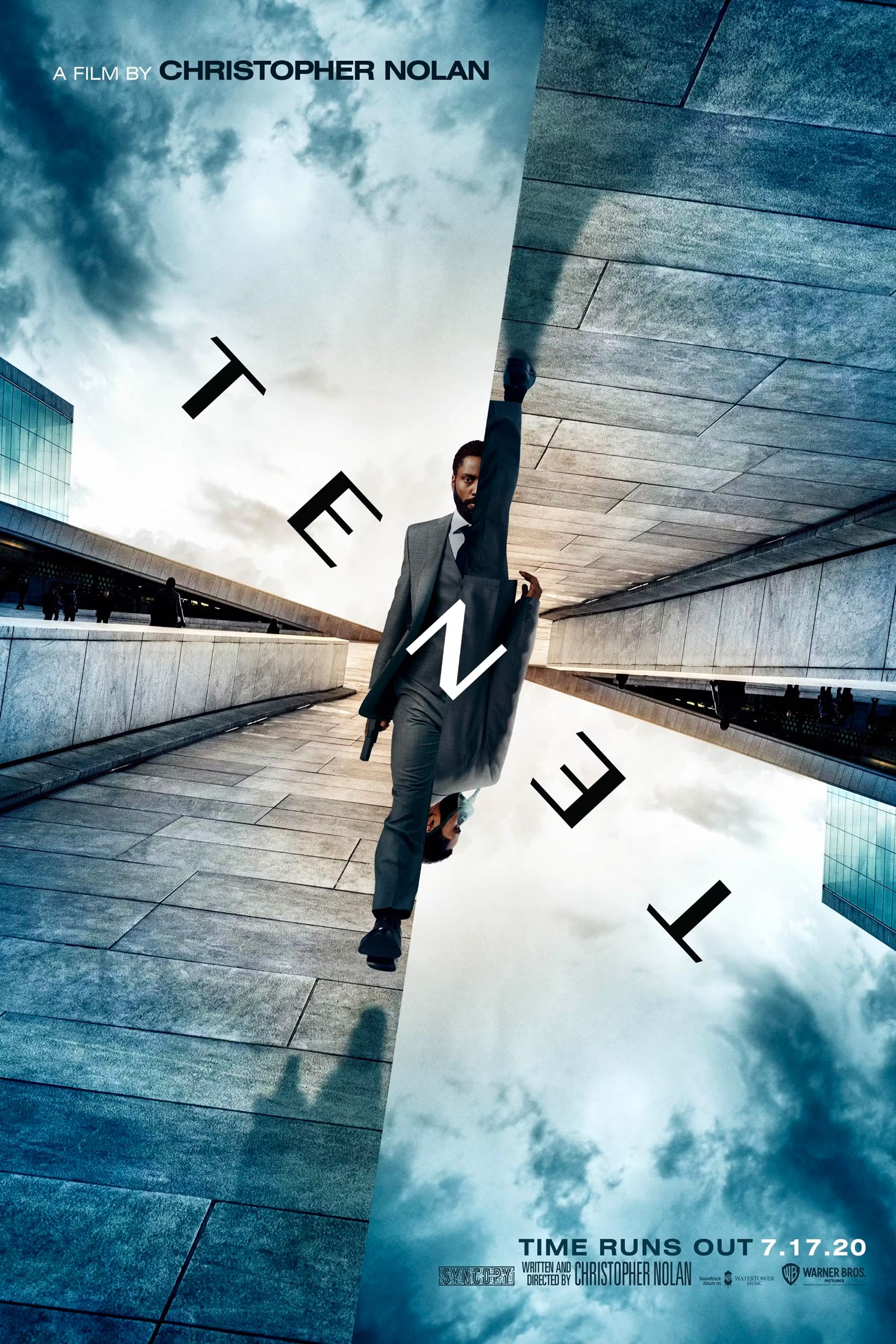It has been a rough stretch for smart science fiction movies over the past decade, but there's hope on the horizon in the form of 2020 releases Tenet and Dune. Sci-fi has always been a genre that has allowed filmmakers to ask big questions, using action and special effects to explore scientific questions such as space exploration, artificial intelligence, and the consequences of technology on society. And these films have resonated with filmgoers over time. Through massive franchises like The Matrix, as well as one-off films such as Inception, smart science fiction has not only forced audiences to think, but also drove them to the cinemas in large numbers.
Recently, however, "smart sci-fi" has been struggling to make a huge impact on the box office. Big-budget titles such as Blade Runner 2049 have flopped despite critical acclaim, and it seems that filmgoers have been opting for louder, more bombastic flicks that pack less of an intellectual punch. Considering the trend, it would be reasonable to worry whether big studios will continue to finance large science fiction projects, as audiences don't seem to be as interested as they once were.
But if any year were to bring a box office renaissance for smart science fiction, it would be 2020. Both Tenet and Dune are set up for major success at the box office; the former is a Christopher Nolan movie, and the latter is an adaptation of a wildly popular series of books. Perhaps these two films could be the ones to put smart science fiction back on filmgoers' radars.
Smart Sci-Fi Movies Have Struggled In Recent Years
Years ago, smart sci-fi was a nearly automatic recipe for both critical and commercial success. This can be traced all the way back to 1999, when The Matrix shattered every expectation the studio had for it; the film grossed $465 million worldwide and won four Academy Awards despite being a relatively obscure project at the time. The early-to-mid 2010s seemed to produce one sci-fi hit after another. Christopher Nolan's Inception, which explored dreams and the subconscious, grossed $828 million, picking up a Best Picture nomination (as well as seven more, winning four). His follow up, Interstellar, touched on space exploration and black holes, grossing $677 million and scoring five Oscar noms. Alfonso Cuaron's Gravity, a thriller about astronauts trying to return to Earth after a space shuttle destruction, won seven Oscars including Best Director. Denis Villeneuve's Arrival, a film about aliens and language that might have been the smartest of the bunch, grossed $203 million (on a $47 million budget) and picked up eight more Academy Award nominations.
But Blade Runner 2049 might have struck fear in the hearts of studios. Villeneuve's 2017 film had a lot going for it: a mammoth $150 million budget, a big-name cast that featuring Ryan Gosling and Harrison Ford, and positive reviews (87% on Rotten Tomatoes). But it only wrangled $92 million at the domestic box office ($260 million internationally), which is far less than Warner Bros. was hoping for considering the budget and pedigree. Despite it being a sequel, Blade Runner didn't have as many ingrained fans as the studio expected, and the film's R-rating and nearly three-hour runtime appeared to drive fans away. The studio-backed smart sci-fi films that followed had similar struggles. Annihilation was a hit with critics and featured Natalie Portman in the starring role, but was a huge bomb, grossing only $43 million against a budget estimated to be as high as $55 million. Ad Astra, a space film starring Brad Pitt, shared similar critical success, and while it didn't bomb as hard as Annihilation, its $127 million gross against an $87 million budget was still underwhelming.
2019 featured a number of big-budget action movies that had massive international success, but most of them were Marvel films: Avengers: Endgame, Spider-Man: Far From Home, Captain Marvel. Star Wars: The Rise of Skywalker is technically science fiction, but it was part of an already massive franchise and doesn't fall into the category of "smart sci-fi." No one expected Ad Astra to get even close to competing with those films, but audiences seem to be losing interest in the thinking man's action flick.
Tenet & Dune Are 2020's Most Exciting Movies
Enter Tenet and Dune, which look like they have all the elements to be crossover successes and break smart sci-fi's losing streak. Tenet is the latest release from Christopher Nolan, starring John David Washington and Robert Pattinson. There's not a ton of available information about Tenet's plot, other than it involves secret agents trying to prevent a cataclysmic disaster, possibly using time travel. Nolan's films are always a commercial success, and he's returning to science fiction after a brief diversion with Dunkirk. With a July 17 release date, Tenet is sure to be one of the summer's biggest films.
Dune adapts Frank Herbert's 1965 novel, which is the best selling science-fiction book of all time. Dune is an epic space adventure that takes place on the fictional planet Arrakis, which contains a drug called "the spice" that extends human life. The book is adored by science fiction fans worldwide, and Warner Bros. lined up an impressive list of personnel to bring the vision to life on the big screen. The film will star Timothee Chalamet, Oscar Isaac, Rebecca Ferguson, Josh Brolin, Jason Momoa, Javier Bardem and Zendaya, among others, with Denis Villeneuve directing. It's scheduled for a December release, right in the middle of awards season. Along with Tenet, Dune is one of the most anticipated films of the year, period – not just in the science fiction genre.
How Tenet & Dune Can Save Smart Sci-Fi
2020 is expected to be a down year for Marvel, which has been dominating the box office for years. With the Avengers franchise coming to an end in 2019, the MCU is moving into Phase 4, and has few major film releases planned in 2020. Black Widow and Eternals are perhaps the biggest ones, which don't have anywhere near the name recognition of Avengers or Spider-Man. In short, the door is open for other films to dominate the box office.
So why not Tenet or Dune? Chances are, both will be critically acclaimed. Nolan has never made a bad movie in his career. The lowest rated film on Rotten Tomatoes that he has directed is Interstellar, which still got a 72%, certified fresh. Tenet is expected to be one of his most ambitious releases yet, so audiences can expect big ideas – and a big box office. The film has already been given a PG-13 rating, which should open it up to much greater ticket sales than if it were rated R. Unless the film turns out to be a major disappointment – which would be unprecedented for Nolan – it's essentially guarenteed to be a hit.
Conversely, Dune is a bigger financial risk. It has a lot of similar elements to Blade Runner 2049 – same director, same studio, and released at the same time of year. One can argue that Dune has a lot more fans than Blade Runner did going in, but the book is more than fifty years old. There is certainly a chance that fans don't turn out to the point the studio hopes, which would spell more trouble for smart science fiction. But if it lands and turns into a hit, studios should take notice, and be a lot more willing to open up their pocketbooks for similar films in the future.






